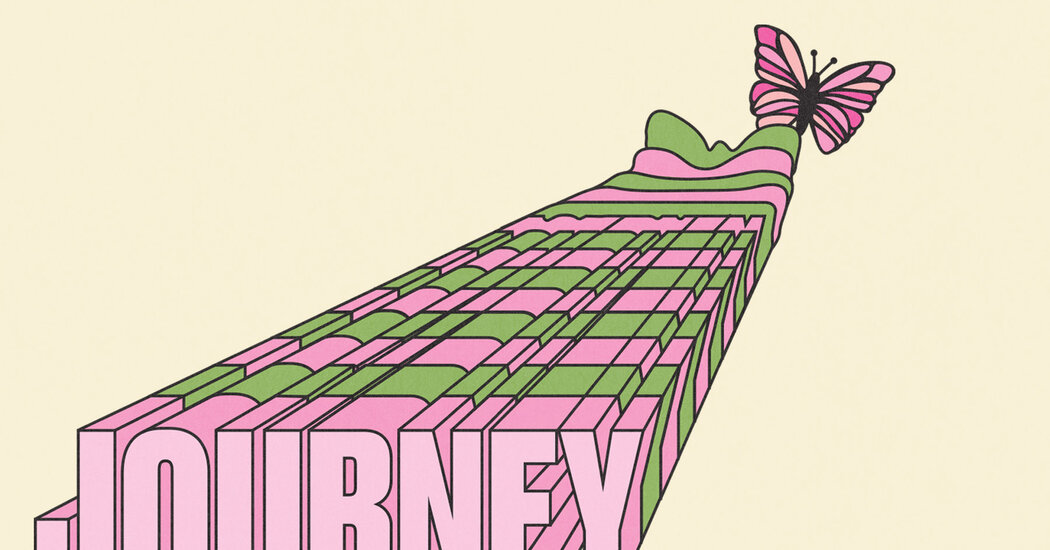Changing our hair, getting divorced, taking spa vacations — they’re not just things we do; they’re “journeys.” The quest for better health is the greatest journey of all.
Drew Barrymore has been talking with Gayle King about her perimenopause “journey,” and the soccer phenom Carli Lloyd has just divulged her fertility “journey.” By sharing her breast cancer story, Olivia Munn has said she hopes she will “help others find comfort, inspiration, and support on their own journey.” A recent interview with Anne Hathaway has been posted on Instagram with a headline highlighting her “sobriety journey,” and Kelly Clarkson has opened up about what Women’s Health calls her “weight loss journey.” On TikTok, a zillion influencer-guides lead pilgrims on journeys through such ephemeral realms as faith, healing, grief, friendship, mastectomy, and therapy — often selling courses, supplements or eating plans as if they were talismans to help safeguard their path.
“Journey” has decisively taken its place in American speech. The word holds an upbeat utility these days, signaling struggle without darkness or detail, and expressing — in the broadest possible way — an individual’s experience of travails over time.
It’s often related to physical or mental health, but it can really be about anything: “Putting on your socks can be a journey of self-discovery,” said Beth Patton, who lives in Central Indiana and has relapsing polychondritis, an inflammatory disorder. In the chronic disease community, she said, “journey” is a debated word. “It’s a way to romanticize ordinary or unpleasant experiences, like, ‘Oh, this is something special and magical.’” Not everyone appreciates this, she said.
According to the linguistics professor Jesse Egbert at Northern Arizona University, the use of “journey” (the noun) has nearly doubled in American English since 1990, with the most frequent instances occurring online. Mining a new database of conversational American English he and colleagues are building, Egbert could show exactly how colloquial “journey” has become: One woman in Pennsylvania described her “journey to become a morning person,” while another, in Massachusetts, said she was “on a journey of trying to like fish.”
Egbert was able to further demonstrate how the word itself has undergone a transformative journey — what linguists call “semantic drift.” It wasn’t so long ago that Americans mostly used “journey” to mean a literal trip, whereas now it’s more popular as a metaphor. Egbert demonstrated this by searching the more than one billion words in a database called COCA for the nouns people put before “journey” to clarify what sort they’re on. Between 1990 and 2005, the most common modifier was “return,” followed by words like “ocean,” “train,” “mile,” “night,” “overland,” and “bus.”
But between 2006 and 2019, usage shifted. “Return” remains the most common noun modifier to journey, but now it’s followed closely by “faith,” “cancer,” and “life.” Among the top 25 nouns used to modify “journey” today are: “soul,” “adoption,” and “hair.”
